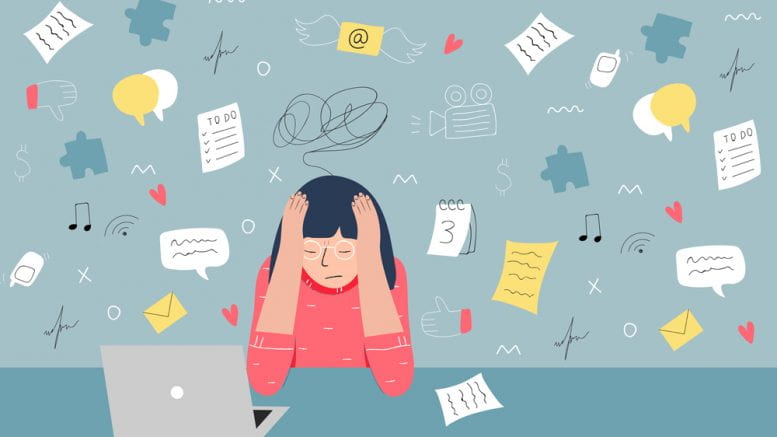By Angela Yeung
It’s four in the morning and you’ve just flicked off the lights, slumped back in bed as you think about the past few hours spent on a particularly grueling chemistry lab report. And it’s not just you that’s getting a couple hours less sleep than you need — it’s mostly everyone you know. Maybe it’s the procrastination that keeps us up at night. Another reason that contributes to the bags underneath our eyes could be the workload — and pressure — that we have to shoulder during our high school careers.
According to LearnPsychology.org, some kinds of stress are beneficial and allow us to grow through improving our strengths. Sometimes, stress in moderation enhances academic ability by motivating students to study more. High school can be a good environment to get used to dealing with pressure, because there is definitely going to be a lot more of it in years to come.
There is no way that we experience no stress whatsoever. In KAS, there is the IB system, which requires diploma candidates to take on six rigorous subjects, an additional epistemology course, and while doing all of the aforementioned, write up an independent research essay that is approximately four thousand words and maintain a balanced life through a combination of athletics, service, and creativity. Oh, and by the way, there’s this thing called college after you finish high school, so you have to maintain the highest GPA possible, participate in the most important extracurriculars, have a social life, and…maintain eight hours of sleep a day. So there you have it: the reasons why students at KAS, especially upperclassmen, feel overwhelmed all the time.
This constant pressure can be known as chronic stress. Often perceived as negative, chronic stress can result in the following symptoms:
| Physical | Emotional | Cognitive | Behavioral |
| Headaches
Nausea Getting sick frequently Muscle aches Trouble sleeping |
Lesser patience
Restlessness Irritability Sense of isolation Pessimistic attitude |
Impaired concentration
Anxious thoughts Repetitive thoughts Impaired speech Chronic worrying |
Change in eating habits
Nail biting Pacing Delay in responsibilities Frequent lying |
Adapted from learnpsychology.org
If you exhibit these symptoms, you’re not on your own — most high schoolers feel the same. Everyone, including your teachers, knows this. But maybe we haven’t taken into consideration that a large part of our lack of sleep is kind of…our own fault, and that chronic stress can simply stem from our internal refusal to simply get started on simple tasks, a.k.a. procrastination.
Honestly, everything would be so much easier without procrastination. Imagine just getting home and starting on work immediately without any distractions. Imagine not opening twenty other tabs on your browser and going to a different social media for each tab, sliding down that rabbit hole of memes and text messages. Imagine going to sleep before 11 every night and having your life together.
Personally, I’ve tried everything to stop procrastinating. I’ve subscribed to online forums about productivity, tried to set up Screen Time on my phone so that it tracks down (and locks) the apps that I overuse, downloaded a bunch of To-do lists on my phone…they never work. At the end of the day, I always find myself overloaded with work, somehow with my phone still in my hand. Only when midnight nears do I find myself gradually becoming focused on actually getting stuff done, and getting more stressed out as I get less and less sleep. Unsurprisingly, plenty of my friends face the same problem, and perhaps you do, too.
So how can we stop procrastinating, and subsequently, decrease the risk of getting chronically stressed out?
There are way too many answers out there. Most people talk about self-discipline, which is essentially saying “only you can help yourself.” And that is true, to some extent. It would be so easy to just put the phone down and start on work, but deep down we all know that we just don’t want to.
Something that I have been trying out for the last month is to work in a different environment — one that doesn’t make me feel as comfortable. Would a library be a good place for gaming, or for endless hours of scrolling on the phone? Probably not, especially when everyone around you is working away. Being too relaxed allows one to start procrastinating, so by putting yourself in a location where procrastination feel out of place, you allow yourself to be slightly more productive. Additionally, changing where you work can help you approach your to-do list in a novel and fresh way.
Speaking of a to-do list, keeping one can both be rewarding and help keep track of the work needed to be done. Start by writing down a goal and giving it a deadline. Next, break down your goal into smaller pieces. The bigger your goal gets, the more quickly it can send you into overwhelm; so if your goal feels daunting, break it into manageable, bite-sized steps. As you complete each piece, ticking off each steps on your to-do, you will start to see the accomplishments you’ve collected through the way. As rewarding as it might feels, you would begin to gather momentum and soon turning it into a habit.
